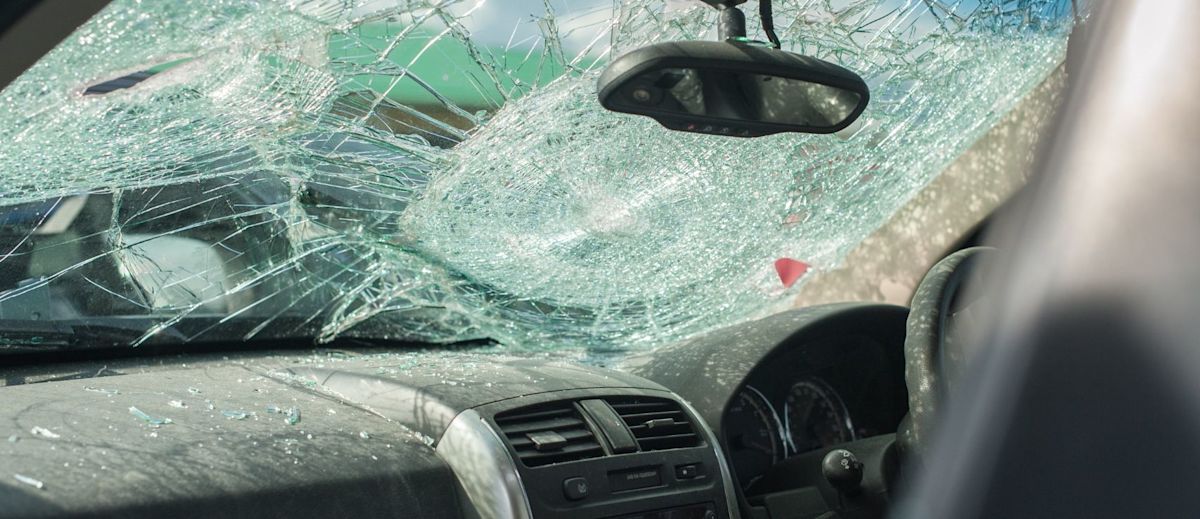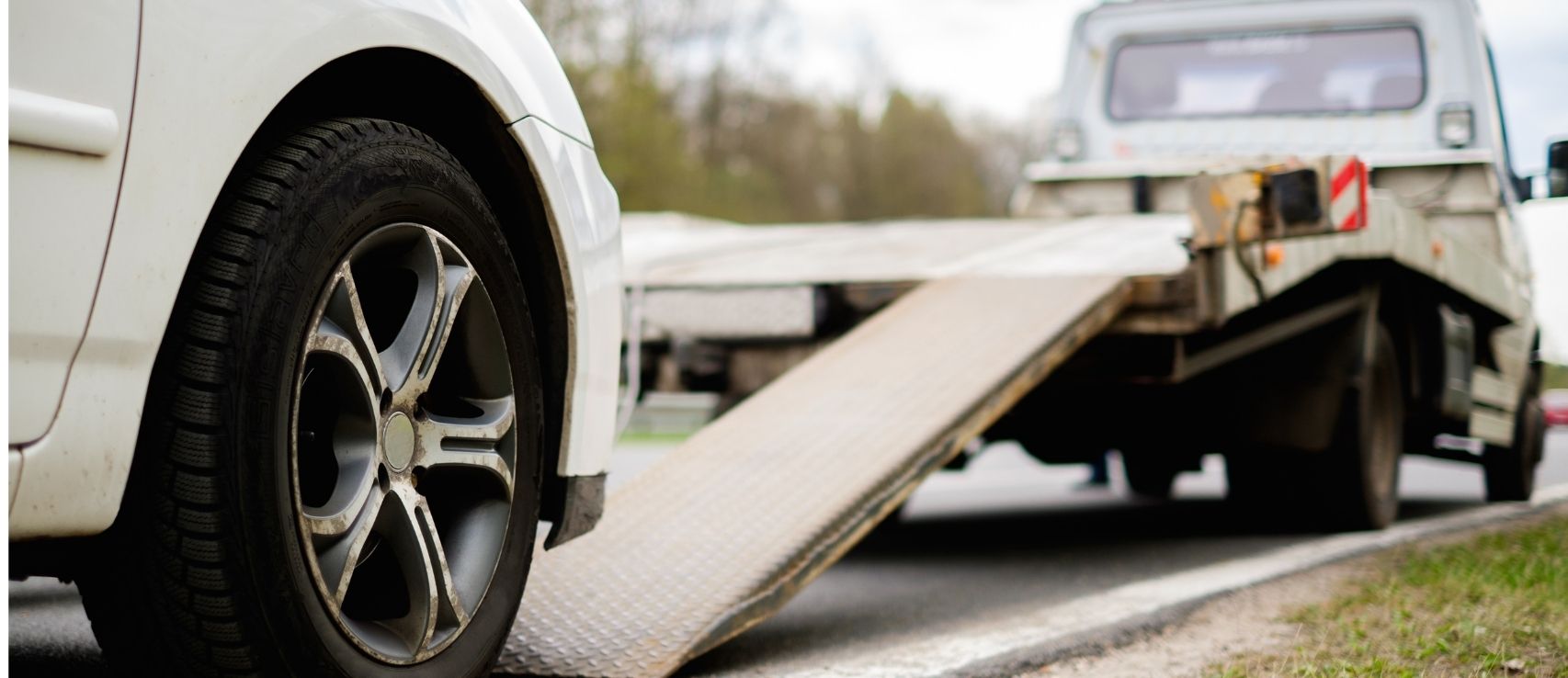
Debunking Car Insurance Myths
Car insurance! You’ve probably heard it all—‘stick with one insurer, and you’ll save heaps,’ or ‘older cars are dirt cheap to insure.’ In this blog, we’re cutting through the noise to bust some of the more common car insurance myths and help Kiwi drivers make smarter choices about their cover.
1. “Car insurance only covers damage to my car”
Fact: Car insurance covers much more, as discussed in our guide. In New Zealand, a comprehensive car insurance policy can include theft, damage to other vehicles, legal liability, windscreen replacement, and even roadside assistance. Some policies also cover lost keys and children's car seats.
What you need to know: Not all policies are the same. With Quashed, you can easily compare policies and see if extras like trailer cover or rental car hire are included. Always read the fine print to avoid surprises when you need to make a claim.
2. “All car insurance is the same—just pick the cheapest one.”
Fact: The best car insurance depends on your needs. Do you only need basic third-party cover, or do you want full windscreen replacement and rental car cover? There’s no one-size-fits-all solution. If you drive a newer car, comprehensive cover might be your best bet to avoid costly repairs.
What you need to know: Don’t just choose based on price. Consider what kind of protection is important to you. A cheaper policy might save you money now but leave you exposed later.

3. “I don’t need insurance; I’m a safe driver”
Fact: Even if you’re a safe driver, accidents happen. More importantly, liability cover is essential in New Zealand. Without insurance, you could face huge costs if you’re found at fault in an accident, not to mention potential legal fees. Insurance doesn’t just protect your car—it protects you financially if something goes wrong. The type of vehicle you drive can impact your insurance needs—especially if you drive newer models, like electric vehicles
What you need to know: Liability cover is a must-have, as it protects you from the financial consequences of accidents. Always ensure your policy includes liability protection to safeguard against unexpected legal or repair costs.
4. “Car insurance is too complicated to understand”
Fact: It’s not as confusing as it seems. Essentially, you pay a premium (monthly or annually), and in return, your insurer covers certain costs if something happens to your car. The key is knowing what’s included in your policy and what your excess is when making a claim. That’s where Quashed comes in handy—it helps you compare policies easily, so you know exactly what you’re paying for and what’s covered.
What you need to know: The basics are straightforward—just make sure you understand the policy terms, your excess, and what’s included in the cover. Tools like Quashed make this comparison even easier.
5. “Always go for the cheapest policy”
Fact: The cheapest option isn’t always the best one. While it’s tempting to save a few bucks upfront, a cheaper policy may leave you exposed when it’s time to make a claim. Coverage is key—saving now might cost you later if your policy doesn’t include features like theft protection or roadside assistance.
What you need to know: Look beyond price when choosing a policy. Think about what protection you’ll need in real-life situations, such as accidents, theft, or breakdowns. Balancing cost with coverage ensures you’re not caught out when the unexpected happens.
6. “Insurance premiums are just pulled out of thin air”
Fact: Insurers calculate premiums based on several factors, including your age, driving history, the type of car you drive, where you live, and how often you drive. Younger drivers tend to pay more, as they’re statistically more likely to be involved in accidents. According to the Quashed Index, comprehensive car insurance for drivers aged 18–24 costs $1,711 annually on average.
What you need to know: Your car’s value and your location also play a big role. If you drive a high-value car or live in a high-risk area (think Auckland storms), expect your premiums to be higher.

7. "Insurance companies are just out to get me”
Fact: Premiums are rising, but for good reasons. According to the Quashed Index, comprehensive car insurance premiums have increased significantly, driven by factors such as inflation, higher repair costs, and environmental events like flooding.
What you need to know: While costs are up, that doesn’t mean you should settle for an overpriced policy.
8. “I’m a great driver; I don’t need much insurance”
Fact: Loyalty doesn't always pay off. Many insurers don’t reward long-term customers with better rates. In fact, new customers often get better deals through promotions and introductory offers. Shopping around regularly can help you find a more competitive premium and better coverage.
What you need to know: Assess your car’s value, how often you drive, and your risk tolerance. Comprehensive car insurance offers peace of mind, but third-party might be all you need if your car is older and low-value.
9. “Once I buy car insurance, I’m stuck with it for a year.”
Fact: Most car insurance policies in New Zealand allow you to cancel at any time, but it’s important to check your insurer’s terms. While you might receive a refund for any unused portion of your premium, some providers may charge a cancellation fee. If you find a better deal or your circumstances change, switching policies is often easier than you think.
What you need to know: Always review your policy's cancellation terms before making any decisions.
10. “Comprehensive car insurance means I’m covered for anything"
Fact: While comprehensive car insurance provides the broadest coverage, it doesn’t cover everything. For example, general wear and tear, mechanical breakdowns, and illegal modifications are often excluded. That’s why it’s crucial to read the fine print and know exactly what’s included in your policy.
What you need to know: Comprehensive car insurance policies can still have exclusions, so don’t assume you’re covered for all scenarios. Use Quashed to compare policies and find out which ones offer the best protection for your specific needs.
How Quashed helps you cut through the noise
Now that we’ve busted the biggest car insurance myths, let’s talk about how Quashed makes finding the right cover simple and stress-free. No more confusion—just clear, side-by-side comparisons that help you make smarter choices.
Debunk the confusion with real-time quotes: Compare quotes from leading insurers instantly and see exactly what each policy covers—no more hours wasted searching multiple sites. That’s where Quashed comes in—saving you time and effort with real-time insights.
Tailored to your needs, not the myths: Adjust your policy settings, including coverage type, sum insured, and excess, to find the perfect fit for your car and budget.
Save time and money: Forget the myth that shopping for car insurance is complicated. With Quashed, you'll get accurate comparisons in minutes, helping you make informed decisions faster.
No more one-size-fits-all
Why settle for a policy that doesn’t fit your lifestyle? With Quashed, you’re in the driver’s seat.
Our platform lets you customise key policy details to match your needs—without the hassle.
Insurance type: Switch between comprehensive and third-party cover to find the right level of protection.
Sum insured: Adjust your coverage to avoid being over or underinsured.
Excess amount:Choose an excess that works for your budget and risk appetite.
Make smarter, more personalised choices in just a few clicks—no need to deal with insurers directly.
Start customising your cover today and see the difference for yourself!
Confused about car insurance?
Don't let car insurance myths steer you wrong.
With Quashed, you can compare policies side by side, see exactly what’s covered, and make smarter choices—fast.
Sign up for free today and join over 45,000 Kiwis using Quashed to compare insurance with confidence!
Further reading
Check out these useful articles.
How to Save Money on Your Insurance: Smart ways to cut down your costs.
10 Insurance Mistakes That Cost You Money: Common pitfalls to avoid.
Key Factors in Choosing the Best Car Insurance: What really matters when picking a policy.
Why Is Car Insurance So Expensive?: The key reasons behind rising premiums.
Smart Ways to Slash Your Car Insurance: Tips to lower your premiums without compromising cover.
Car Insurance Quotes: How to compare and find the best deals.
Cheapest Versus Best Car Insurance: Finding the right balance for your budget.
Sorting Out Your Car Insurance Renewal: Steps to avoid overpaying at renewal time.
FAQs
Separating fact from fiction and answering the most common car insurance questions in New Zealand.
Car insurance and coverage
What’s the difference between comprehensive and third-party insurance?
Comprehensive car insurance covers both your car and others’ in case of damage, while third-party insurance only covers damage you cause to other vehicles.
Does not having a Warrant of Fitness (WoF) or registration void my insurance?
Some believe that if your WoF or rego has expired, your insurer will automatically decline a claim. If your car is roadworthy and the lack of a WoF didn’t contribute to an accident, most insurers will still cover you. If the expired WoF means your car was unsafe, you could run into issues.
Will my insurance cover me if I import a car from Japan?
As long as the car meets New Zealand compliance standards, insurers will cover it. An agreed value policy may be a better option to protect against depreciation and import costs.
Is it true that car insurance doesn’t cover modifications?
Certain modifications, especially performance upgrades like turbochargers or lowering kits, can make your car uninsurable or significantly increase your premiums. If you’re modifying your car, check with your insurer first.
Will my car insurance cover rental cars in New Zealand?
Some policies include rental car cover, but many do not. If you’re renting a car, check whether your policy includes this or if you need additional rental car insurance.
Are certain car models more expensive to insure due to theft risk?
Vehicles like the Toyota Aqua have high theft rates in New Zealand, leading to increased insurance premiums. If you own a commonly stolen car, extra security measures, such as a steering lock, may help.
Costs, premiums, and savings
How are car insurance premiums calculated in New Zealand?
Premiums depend on factors such as age, driving history, car type, location, and how you use your vehicle. Younger drivers typically pay more due to higher accident risk. Keeping a clean driving record and regularly comparing policies can help lower premiums.
Does cheaper car insurance mean I’m saving money?
A lower premium might look good, but it could exclude important coverage such as theft protection, roadside assistance, or damage to your own car. Balancing cost and coverage ensures you aren’t left unprotected when something goes wrong.
Is loyalty to one insurer rewarded with discounts?
Staying with the same insurer for years does not necessarily lead to better deals. Many Kiwis find that premiums increase over time, and switching insurers often results in lower rates. Comparing policies regularly can lead to better value.
Are young male drivers always charged more for insurance?
Young men are statistically involved in more accidents, but insurers also consider driving history, location, and vehicle type. A clean driving record can help lower premiums over time.
Why should I compare car insurance quotes?
Comparing policies helps you find the best balance between cost and coverage. Insurers calculate risk differently, so shopping around can often lead to significant savings.
What should I consider when renewing my car insurance?
Before renewing, check whether your policy still offers the best value, whether your car’s value has changed, and whether you’re paying for extras you no longer need. Reviewing your policy ensures you aren’t overpaying for outdated coverage.
Policy changes and cancellations
Can I cancel my car insurance policy anytime?
Most insurers allow you to cancel your policy at any time, but some may charge a cancellation fee. Check your policy terms before making any changes.
This article provides general information only and does not constitute insurance or financial advice. Insurance policies vary between providers, and you should check with your insurer or a licensed adviser for guidance specific to your situation. For full details, refer to Quashed’s terms and conditions.
